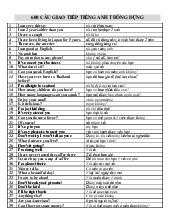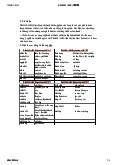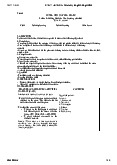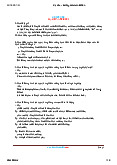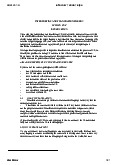






Preview text:
23:58 28/7/24
Sino-American relations were in trouble long before Donald Trump Menu Subscribe JD China | Chaguan
Sino-American relations were in trouble long before Donald Trump
A new book by a veteran scholar explains why Oct 6th 2022 Share
As communist party leaders tell it, China’s relations with the West resemble a
brawl between heavyweight champions, made vicious by American cheating.
This narrative of grievance has been building for years and starts at the top. In July
2018, as China reeled under the rst blows of Donald Trump’s trade war, President
The Economist offers unmissable insights into Asia and th i h hi i d i f b h i lik h i “ l about:blank 1/7 23:58 28/7/24
Sino-American relations were in trouble long before Donald Trump
with his guests, Mr Xi accused America of behaving like a ghter in a “no-rules
boxing match”. Since then, Chinese complaints have not been muted by Mr
Trump’s defeat and replacement by President Joe Biden. That is odd, because Mr
Biden is a politician of the old school, whose diplomatic style—truth be told—
involves more back-slapping than eye-gouging.
Listen to this story. Enjoy more audio and podcasts on iOS or Android.
In part, Chinese grumbling is tactical: a bid to blame bilateral tensions on America.
When Wang Yi, China’s foreign minister, met his American counterpart Antony
Blinken on the sidelines of the un General Assembly in September, he urged the
Biden administration to “reect on and change” what he called its eorts to
contain China’s rise. In part, a chin-jutting stance serves the self-interest of
foreign-policy bureaucrats. When Chinese diplomats portray their country as the
victim of Western low blows, and promise to punch back, they are answering calls
from Mr Xi to show “ghting spirit”. The Chinese foreign ministry can read opinion
polls. Lots of its diplomats know that China’s image has been harmed in liberal
democracies by “wolf warrior” colleagues: foreign ministry spokesmen and
ambassadors who lash out at critics of China on Twitter and in foreign media
interviews. But wolshness is popular with China’s public. At a recent press
conference on diplomacy in the Xi era, a deputy foreign minister, Ma Zhaoxu,
growled: “Our diplomatic struggle is aimed at words and deeds harmful to Chinese
national interests and national dignity.”
Visions of China and America as two bullies in a ring, in a ght that turned ugly
during Mr Trump’s presidency, are shared by many foreign governments, notably
in the developing world. In Beijing, it is common to hear diplomats from emerging
economies call their countries unwilling bystanders to an ideological feud that
threatens to disrupt trade ows and create a global split.
It is true that relations worsened in the Trump era. Though seemingly untroubled
by Mr Xi’s autocratic ways (telling China’s leader that he was right to lock up about:blank 2/7 23:58 28/7/24
Sino-American relations were in trouble long before Donald Trump
Uyghurs and other Muslims, according to his former national-security adviser), Mr
Trump saw populist opportunities in telling American voters that China had stolen
their jobs and sent covid-19 in return. More conventionally hawkish American
ocials took advantage of Mr Trump’s combative instincts to enact policies that
treated China as a comprehensive threat to national security.
Yet it is too simple to reduce today’s geopolitical complexities to a slugging-match
begun by two men, Mr Trump and Mr Xi. It is also at odds with history, as described
in a new book, “Overreach: How China Derailed Its Peaceful Rise” by Susan Shirk, a
scholar and former American diplomat who rst visited China in 1971.
Drawing on interviews with Chinese ocials, military men and at least one
(unnamed) government minister, Ms Shirk, a professor at the University of
California, San Diego, records how China’s foreign and domestic policies took a
hardline turn as long ago as 2006. That was during the tenure of Hu Jintao, Mr Xi’s
cautious, wooden predecessor, who in his decade as Communist Party chief had to
accommodate powerful factions and interest groups, like a weak emperor ruling at the pleasure of feudal barons.
Many alarming policies associated with Mr Xi began under Mr Hu. In the eld of
foreign policy, these range from sending warships, shing eets and oil-drilling
rigs to confront neighbours in the South China Sea and other disputed waters, to
declaring an ever-longer catalogue of Chinese “core interests” that foreigners may
not challenge. At home, the Hu era saw increased party control over the legal
system, stricter censorship, repression of Tibetans and other ethnic minorities and
a greater role for state-owned enterprises, notably in sensitive technology sectors.
Mr Xi’s revival of one-man rule is blamed for removing checks and balances on
hardline policies, and with reason. But under Mr Hu, control-obsessed factions,
from the armed forces to propaganda and security agencies, took advantage of
weak, collective leadership to advance their interests by exaggerating threats to
internal stability and external security, Ms Shirk writes. Democratic “colour
revolutions” in the former Soviet bloc fed paranoia about American-led plots. The
global nancial crisis provoked nationalist triumphalism about Western decline.
The party forgot the advice of Deng Xiaoping, paramount leader of the post-Mao
era that China should hide its strengths and bide its time to create an about:blank 3/7 23:58 28/7/24
Sino-American relations were in trouble long before Donald Trump
era, that China should hide its strengths and bide its time, to create an
environment conducive to economic development.
Bullying foreigners to impress the home crowd
Tests of American strength began long before Mr Trump’s election. His predecessor
Barack Obama sought to work with China on such global challenges as climate
change, and made a point of not condemning its political system. China did not
reward him. Mr Obama had barely been sworn in when China began harassing
American surveillance ships. His rst visit to the country involved multiple snubs.
First under Mr Hu then under Mr Xi, China bullied America’s allies in Asia, Japan
and South Korea. It also broke public commitments to Mr Obama over the
militarisation of reefs in the South China Sea and commercial espionage. Ms
Shirk’s sources see structural causes for this overreach. In the paranoid, secretive
world of elite Communist Party politics, foreign-policy swagger is intended to
signal strength in domestic ghts.
The book concludes by describing a better model for competition with the West: a
race in which each side tries to get ahead, rather than a boxing match designed to
hurt or change the other. For now, alas, China’s rulers see more incentives to ght. 7
Read more from Chaguan, our columnist on China:
How China’s covid policy is like Prohibition in America (Sep 29th)
Xi Jinping won’t ditch Vladimir Putin, for now (Sep 17th)
Subscribers can sign up to Drum Tower, our new weekly newsletter, to understand what
the world makes of China—and what China makes of the world.
This article appeared in the China section of the print edition under the headline "Spoiling for a fight" China October 8th 2022
→ How retired party officials make themselves heard in China
→ How academies for cadres shape China’s ruling class about:blank 4/7 23:58 28/7/24
Sino-American relations were in trouble long before Donald Trump
→ Han Chinese seek spiritual salve in Tibetan Buddhism
→ Sino-American relations were in trouble long before Donald Trump From the October 8th 2022 edition
Discover stories from this section
and more in the list of contents Explore the edition Share Reuse this content THE ECONOMIST TODAY
Handpicked stories, in your inbox
A daily newsletter with the best of our journalism Sign up More from China about:blank 5/7 23:58 28/7/24
Sino-American relations were in trouble long before Donald Trump
Can Xi Jinping control AI without crushing it?
Articial intelligence will test the Chinese Communist Party’s ability to shape innovation to suit its purposes
Communist Party members must study Xi Jinping’s thinking
The education campaign will not be fun for bureaucrats
China throws the book at two prominent human-rights lawyers
While an infamous human tracker gets a lighter sentence about:blank 6/7 23:58 28/7/24
Sino-American relations were in trouble long before Donald Trump Subscribe Group subscriptions Reuse our content Help and contact us The Trust Project Keep updated
Published since September 1843 to take part in “a severe contest
between intelligence, which presses forward, and an unworthy, timid
ignorance obstructing our progress.” The Economist The Economist Group About The Economist Group Advertise Economist Intelligence Press centre Economist Impact Economist Events Working Here Economist Education Courses Which MBA? Executive Jobs Executive Education Navigator
Terms of Use Privacy Cookie Policy Manage Cookies Accessibility Modern Slavery Statement Sitemap
California: Do Not Sell My Personal Information
Copyright © The Economist Newspaper Limited 2023. All rights reserved. about:blank 7/7
